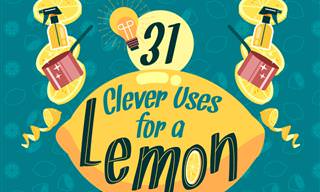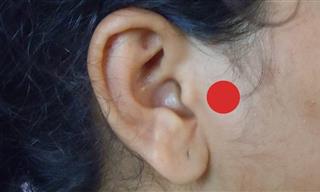
Electric mosquito killers, also called bug zappers, are used by many during hot summer months to fight against annoying mosquitoes and other insects. Although we are sure that they are very effective because of the zapping and the manufacturers' claims that this is the ideal solution to our mosquito problem, there are a number of important things you need to know about them...
We aren’t saying that you shouldn’t try to avoid getting bitten, especially by insects that carry dangerous viruses, just that the use of these devices may pose their own set of dangers.

The concept of an electrical insect trap was first thought up in 1911 by the popular tech magazine “Popular Mechanics.” Despite the revolutionary principle and obvious utility of the invention, most people thought at the time that the expected costs of designing and manufacturing such a device would be very high and not worthwhile. About twenty years later, in 1932, the electric mosquito killer was patented in the US Patent and Registration Office. Two years later, a professor of parasitology at the University of California, introduced the pioneering electrical mosquito killing device, which became the basis of what we know today.
The idea behind it was quite simple: a source of light attracts flying insects into an electric grid that stuns or electrocutes them to death. However, only a few years later, studies began showing their negative side...
Although using artificial light to attract flying pests and then neutralizing them without using chemicals sounds like a very good idea, the reality is quite complex. According to Jonathan Day of the University of Florida, electric mosquito killers are a complete waste of money: "They don’t work the way advertisers declare," he says, adding, "In fact, they're drawing more mosquitoes into your yard (or home)!" And it's not just those annoying prickly flies; the light that these devices emit attracts huge amounts of insects, and most of them are not dangerous or harmful to humans.
This claim was proven by a study conducted at the University of Delaware which tracked the use of such devices. The researchers found that of 13,789 insects were simulated by 6 different devices over 15 summer nights, only 31 were species that bite people! The other insects were probably useful insects that did not harm us in any way but did have great ecological importance.
It is worth noting that bug zappers that emit carbon dioxide can be purchased to attract mosquitoes, but studies show that they prefer the natural form of gas emitted from humans. In addition, these devices can be very dangerous in a closed environment, making it a far from perfect solution.

Another danger to be noted is the result of the electrocution of the insects that are attracted to these killers - mosquitoes, moths or any other species. The results of various studies have shown that at the moment of electrocution, pieces and body fluids of the insects are sprayed into the distance and can spread within a radius of up to two meters (depending on the size of the device, the electric intensity, the insect type, the location of the zapper, etc.) and can land on people and even food nearby. As you can imagine, these bug traces can spread viruses and bacteria that can cause various diseases - and remember, most of these bugs would pose no harm if electric killers were not used. Since such appliances can be found in many restaurants and businesses, you should stay away from them and place them away from the dining table if you choose to use them during picnics or meals in your yard.

May we all have an enjoyable, sae, mosquito-free summer!

Can We PREVENT Type 1 Diabetes?
The study's findings point toward developing a simple blood test that could detect the immune failure leading to type 1 diabetes before insulin-producing cells are permanently lost.

Air Hand Dryers - Is It EVER a Good Idea to Use Them?
Is it ever a good idea to use air hand dryers in a public restroom, especially considering the threat of the coronavirus pandemic?

The Impact of Ultra-Processed Foods on Male Fertility
Emerging research suggests a significant concern: a diet dominated by these foods can also negatively affect male reproductive health and diminish sperm quality.

New Research Shows Eating Sweets Won't Make You Crave More
A groundbreaking new study challenges conventional wisdom, suggesting our preference for sweet tastes may be more stable than we think.

Do Birds Carry Diseases? How to Act With Feral Birds
This article explores which feral birds (especially in North America, with a couple of European examples) pose health risks, what diseases they spread, and how to protect yourself and your pets.

The Musical Test That Could Detect Dementia Early
Researchers have developed a promising new approach: using music to detect the early signs of cognitive decline.

The 11 Best Meal Planning Apps to Help You Lose Weight
Fortunately, numerous apps can make meal planning—and potentially weight loss—much more achievable.

Ever Hear of the 54321 Shopping Method to Buying Groceries?
Grocery shopping has become increasingly stressful as prices continue to climb. Many shoppers find themselves struggling to balance their budgets while still putting nutritious food on the table. But a straightforward shopping strategy is helping peo
 1:05
1:05
Use This Trick to Stretch Your Butter Supply!
This butter hack will change your kitchen game!

Do This Eye Exercise At the End of a Screen Intensive Day
Suffer from painful and tired eyes after another day of working in front of the computer? You may be hurting your eye muscles... Fix the problem with this exercise.

6 Ingenious Winter Car Tricks Everyone Should Know
What could be worse than finding that your car is buried in ice and snow? Here are the solutions to 6 common car problems that occur in the winter.

8 Foods That Will Make Cleaning a Lot Easier
The following 8 foods can all be used to make your cleaning routines a lot easier.

Your Old Spices Can Still Work Wonders Around the House
Here are 11 clever ways to use up spices that have lost their zing.

Genius Hotel and Packing Tricks You’ll Surely Appreciate
These invaluable tricks will help you get around 18 common traveling problems, particularly those that deal with hotels and luggage packing...

Is Freezer-Burned Food Safe to Eat?
Learn what freezer burn really is, whether or not it’s good for you, and how to prevent it here.

How To Ward Off the Most Common Summer Pest
In order to prevent unwanted pests in summer - especially cockroaches - consider this one important thing.
 3:54
3:54
Shoveling Snow This Year, Use This Great and Simple Trick
Got a lot of snow to shovel? Here's the easiest and safest way to do so.

Things Considerate Shoppers Never Do at the Grocery Store
Here are 15 things considerate shoppers avoid doing at the store.

This Military Trick Will Have You Asleep in No Time!
Everyone can experience sleeping problems, especially soldiers and thanks to this military technique, you can now fall asleep quickly...
 5:59
5:59
Animal Advice: How to Make Any Cat Like You
How to charm any cat you meet into liking you.

Why Are Your Indoor Plant’s Leaves Turning Brown?
Brown leaves is one of the most worrisome problems of indoor plant enthusiasts. Follow this guide to get to the bottom of the issue.

15 Reasons to Never Throw Away Used Corks Again!
There's no limit with what you can do with a simple collection of corks. Make your used corks useful again with these brilliant DIY ideas.

5 Essential Training Skills You Must Teach Your Dog!
Dog training is a lifelong process, but some skills are more important than others. Here are the most important dog training skills.

31 Genius Uses for Lemon That Are Worth Knowing
Did you know that lemons could help you clean, cultivate, and even give first aid? Discover 31 brilliant uses of lemon....

How to Clean the House Quickly and Efficiently
There are plenty of cleaning hacks out there, but which ones actually work? Find out here!

Aging Hands? Keep Them Looking Young with These Tips
With proper care, and this handy advice, your hands will keep your age hidden for longer.

10 Natural Ways to Keep Your House a Spider-Free Zone
Having spiders in your home is never pleasant, nor are the chemicals normally used to get rid of them. Here are 10 natural ways of ridding your home of spiders.

Surprising Papers You Must Shred to Prevent Identity Theft
If you don't shred these seemingly harmless documents and throw them directly into the trash, you may be subject to identity theft...

Solve 18 Cooking and Food Storage Problems With These Tips
These 18 food tips will teach you how to prevent food from spoiling and will show you how to save time and effort in preparing certain foods

Warning: Are You Overlooking These 10 Home Risks?
Home is where the heart is, but it’s also where a load of potential dangers lurk as well. Here are ten of them!
 4:53
4:53
Crazy! These Kitchen Hacks Made Life So Much Easier!
Your kitchen can be easily organized to make your day-to-day life easier using these 9 tips!

7 Common Ways You Are Harming Your Stovetop
Want to ensure that your stovetop runs for a long time? Avoid making these common and obvious mistakes.
 0:58
0:58
How to Prevent Wasps from Invading Your Home
Not many of us are fond of wasps, especially those who have been stung in the past. Here's a quick and easy way to prevent these pests from invading your home.

These Plants Will Keep the Air in Your Home Nice and Clean
It doesn't matter if you have a green thumb or not, these plants are hard to kill and will keep the air in your home free of toxins and pollutants.
 1:30
1:30
This Is How to Effortlessly Clean Copper Pans
Make your copper pots and pans look brand new once again, using only some household supplies that you've probably got laying around at home.

This 2-Ingredient Cleaner Will Leave Your Deck Spotless
If your deck is dirty, you can clean it easily using this simple 2-ingredient cleaner.

10 Heartwarming Ways Your Dog Show He Loves You
discover the 10 unique, and sometimes odd, ways they express their affection toward you, essentially saying without words, "I love you."
 10:27
10:27
The Easiest Way to Get Free Blueberry Plants
With a little patience and the right method, you can harvest blueberries at home!

17 Inexpensive Ideas to Add Some Style to Your Kitchen
Simple and inexpensive fixes to spruce up the most functional room in your home.

Get Rid of These Pet Stains With This Neat Guide
There may be times when our pets have accidents on our favorite carpets, or on the floor. Learn how to remove stains, both old and new, and use home remedies to maintain a clean home.

13 Things to Do Immediately if Your Home Has Been Burgled
Has your house been broken into recently? This guide will help.
 35:19
35:19
Super Tutorial: Top 100 Construction Tips and Hacks
Whether you're a skilled construction worker or just starting out, these practical insights will help you excel using simple tools.
 26:58
26:58
How to Catch a Scam Before It Catches You! - Expert Tips
Never fall for a scam again with these handy tips and tricks.
 3:18
3:18
Remove Home Odors the Natural Way with This DIY Deodorizer
Got an annoying smell permeating your home? Don't buy a pricey toxin-filled spray. Instead, make this wonderfully smelling DIY scent on the cheap. Here's how!

We’ve Got All The Tips And Tricks to Get Out Coffee Stains
These are some tips to help you clean coffee stains that can affect 10 different areas of your life but are easy to fix.

Can't Fall Back Asleep? Try These 8 Genius Tricks
Do you wake up in the middle of the night? Thankfully, there are some natural remedies you can try, that will get you back to falling asleep quickly, making any unwelcome moments of wakefulness seem like nothing more than a fleeting dream.

Use These 5 Pressure Points to Control Your Hunger
The following 5 pressure points that you will learn about will help you control your hunger effectively.

Impress Guests With 14 Nifty Napkin Fold Styles!
This terrific video tutorial will show you 14 easy-to-do napkin folding styles that are creative, whimsical and will guarantee your guests approach the tables with admiring smiles.

10 Signs An Insurance Company Is About to Cheat You
Many insurance companies will do all they can to avoid paying out what they should after an insurance claim. Here are the "red flag" scenarios to be aware of.
To enable your Ad-Free Subscription, please fill the fields below
Your subscription was successful, now you can enjoy an ad-free experience!! Note: To make sure you get no ads, please make sure to log in to your account. If you are logged in already, then refresh the page. The subscription can be cancelled at any time.


